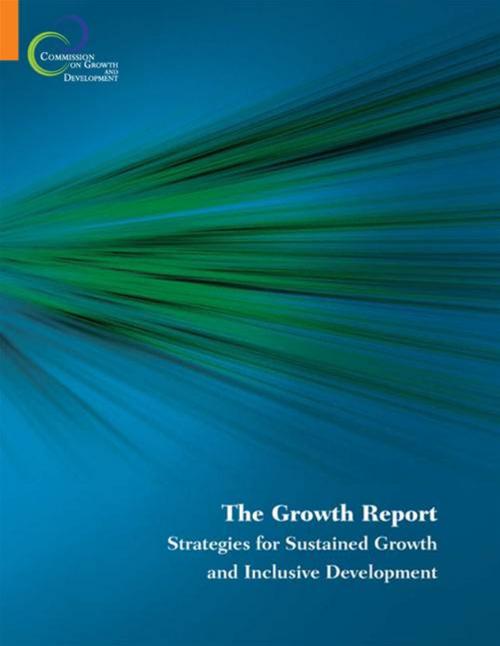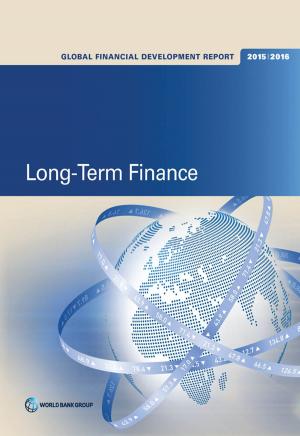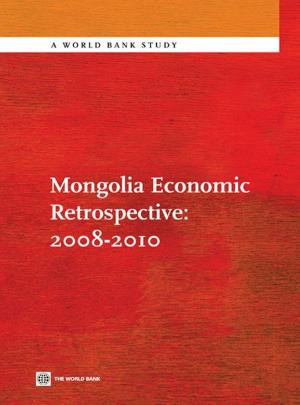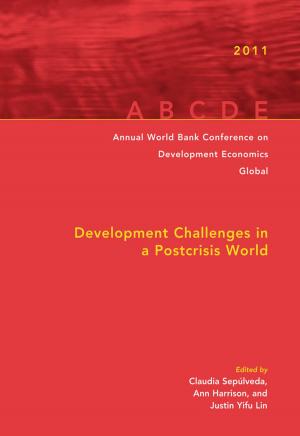The Growth Report: Strategies For Sustained Growth And Inclusive Development
Business & Finance, Economics, Economic Development| Author: | World Bank | ISBN: | 9780821374917 |
| Publisher: | World Bank | Publication: | July 23, 2008 |
| Imprint: | Language: | English |
| Author: | World Bank |
| ISBN: | 9780821374917 |
| Publisher: | World Bank |
| Publication: | July 23, 2008 |
| Imprint: | |
| Language: | English |
• Why have only 13 developing world economies achieved sustained, high growth since World War II? • Why is engagement with the global economy necessary to achieve high growth? • Why do some countries' growth strategies fail to win the public's confidence? • Why are equity and equality of opportunity important components of successful growth strategies? • Why do many countries, blessed with natural resource wealth, not achieve high growth? • Why has no country ever sustained rapid growth without high rates of public investment? • Why does it not always pay to devalue the exchange rate? When does it? • Why is childhood nutrition so important to economic growth? • Why do some economies lose momentum when others keep on growing? • Why has no country ever sustained long-term growth without urbanizing? • Why should there be an end to energy subsidies? • Why do global warming and the rising prices of food, energy and minerals pose challenges to potential future growth in developing countries? • Why does the aging of the world population matter for developing countries growth and employment prospects? • The Growth Report does not have all the answers, but it does identify some of the key insights and policy levers to help countries achieve high, sustainable and inclusive growth. The result of two years work by 19 experienced policymakers and two Nobel prize-winning economists, the Growth Report is the most complete analysis to date of the ingredients which, if used in the right country-specific recipe, can deliver growth and help lift populations out of poverty.
• Why have only 13 developing world economies achieved sustained, high growth since World War II? • Why is engagement with the global economy necessary to achieve high growth? • Why do some countries' growth strategies fail to win the public's confidence? • Why are equity and equality of opportunity important components of successful growth strategies? • Why do many countries, blessed with natural resource wealth, not achieve high growth? • Why has no country ever sustained rapid growth without high rates of public investment? • Why does it not always pay to devalue the exchange rate? When does it? • Why is childhood nutrition so important to economic growth? • Why do some economies lose momentum when others keep on growing? • Why has no country ever sustained long-term growth without urbanizing? • Why should there be an end to energy subsidies? • Why do global warming and the rising prices of food, energy and minerals pose challenges to potential future growth in developing countries? • Why does the aging of the world population matter for developing countries growth and employment prospects? • The Growth Report does not have all the answers, but it does identify some of the key insights and policy levers to help countries achieve high, sustainable and inclusive growth. The result of two years work by 19 experienced policymakers and two Nobel prize-winning economists, the Growth Report is the most complete analysis to date of the ingredients which, if used in the right country-specific recipe, can deliver growth and help lift populations out of poverty.















